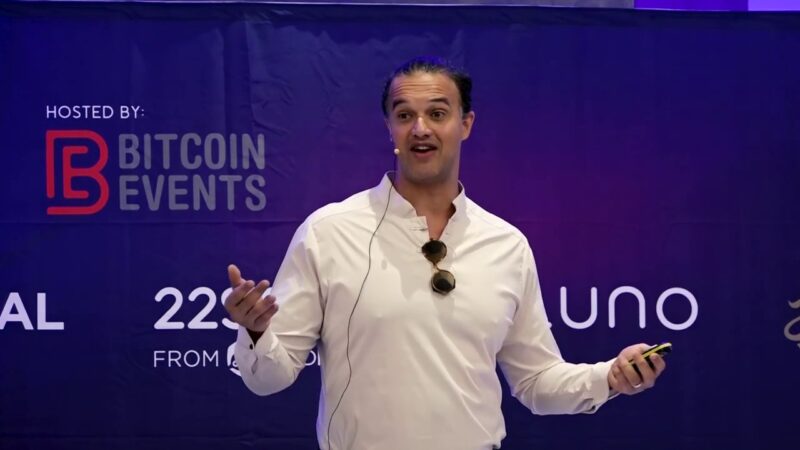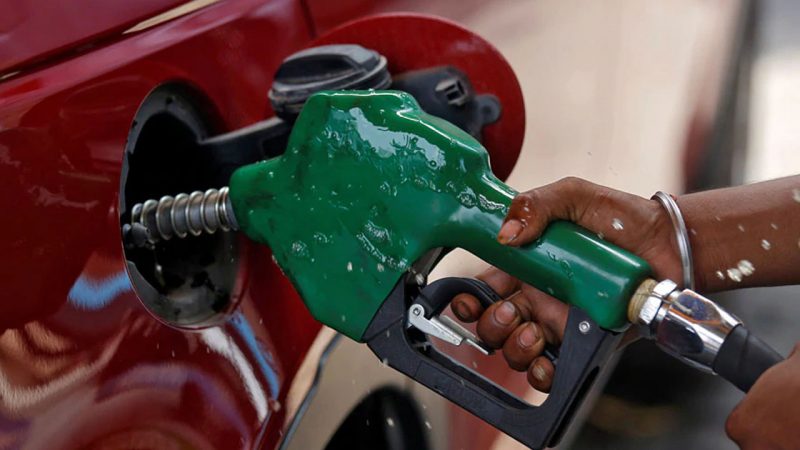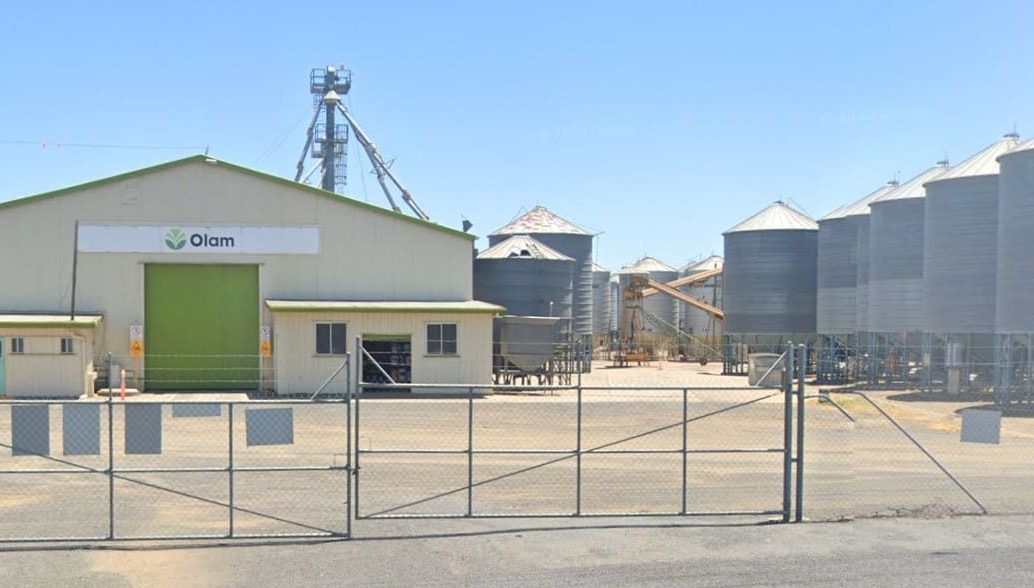Business
After shutdown Bitcoin platform Paxful to pay Nigeria’s 1.5 million users

After shutdown Bitcoin platform Paxful to pay Nigeria’s 1.5 million users
Co-founder of a peer-to-peer Bitcoin platform, Paxful, with 1.5 million users in Nigeria, says he is working on a plan to reimburse their funds using his own money in an effort to comply with the law and avoid getting into deeper legal issues following the sudden shutdown of his exchange.
Paxful last Tuesday announced that it was shutting down its operations as disclosed by Youssef in a blog post.
He said, “Today, Paxful will be suspending its marketplace. We are not sure if it will come back.
In his latest message, Youssef stated that he was at risk of going to jail for failing to comply with court orders concerning the return of Paxful’s frozen funds, which led him to take such a drastic measure.
The Paxful co-founder explained he was taking such a risk because otherwise funds might “fall into oblivion,” and users might never be able to recover them.
However, he asked the community for patience while carrying out this task.
Youssef had earlier said during a Twitter Space said that the decision to close the platform was also influenced by a lawsuit brought by a Paxful co-founder who is suing Paxful and Youssef after being “kicked out of the company” over a year ago.
“My co-founder sued the company and sued me. I have a lawsuit over my head right now,” he was quoted as saying on the Twitter Space.
Though he did not name the plaintiff explicitly, Youssef is likely referring to co-founder Artur Schaback, who filed a lawsuit in Delaware Chancery Court against Youssef in January, based on a court docket hosted on CourtConnect.
Nigeria is ranked eighth in crypto adoption and usage among 154 countries even though the transaction remains banned officially in the country.
Lagos and Ibadan have been listed as cryptocurrency hubs across the globe by crypto accounting services firm, Recap, which put together a list of the top 50 crypto hubs in 2022.
Paxful is credited with pioneering the use of peer-to-peer technology in the country, thus helping to expand the crypto industry in Nigeria.
In an interview with Business Africa Insider in 2022, Paxful’s CEO said that Nigeria is the firm’s largest market, with 1.5 million users and over $1.5 billion volume to date (since 2015).
Business
Petrol price may crash to N500/litre, say marketers

Petrol price may crash to N500/litre, say marketers
Strong indications emerged at the weekend that prices of Premium Motor Spirit (PMS), popularly called petrol, may crash further in 2025.
Industry experts, who spoke to Saturday Sun, noted that petrol, which currently sells for between N900 and N950 in many fuel stations, may have its price further crashing to as low as N500 a litre in the course of the year.
According to oil stakeholders, the likely drop in prices of petrol in 2025 is premised on a strong downstream sector propelled by the deregulation policy of the federal government.
According to industry players, other reasons for the price drop include stable foreign exchange policy, price competition, Naira-for-crude policy and the coming on stream of the Port Harcourt, Warri, and Dangote refineries. They also affirmed that for the refineries to sell their products in the domestic market and accept payment in naira will contribute to price fall.
The Federal Executive Council (FEC) had last July approved the sale of crude to local refineries for payment in naira.
In addition to this is the rebound of activities by modular refineries, which are now upbeat about the downstream sector and have concluded plans to add petrol refining to their stable of products in addition to diesel which hitherto was their sole product line.
This comes as Nigeria’s current daily petrol consumption has hit approximately 40 million litres with local production. According to truck out data from the Nigerian Midstream and Downstream Regulatory Authority (NMDPRA), Dangote Refinery contributes an average of seven million litres while NNPCL controls 1.2 million litres, bringing the total to 8.2 million litres.
READ ALSO:
- Wike: I won’t apologise to Odili, didn’t turn Rivers to personal estate
- Yar’Adua stopped refinery sale to Dangote over due process, paltry amount – Falana replies Obasanjo
- Saudi company SALIC to buy out Olam’s stake in Olam Agri
Modular refineries are out of the picture as they only produce diesel for now. The country currently has about 25 licensed modular refineries but only five are in operation.
This means that only 20.5 per cent of the country’s petrol need is met through local refining, while the remaining 79.5 per cent or 31.8 million litres are imported.
At the moment, the Dangote Refinery is producing about 30 million litres of petrol but only injects about seven million litres into the domestic market, a figure which increased by five million litres in October, up from its initial 25 million litres.
On the contrary, the 125,000 barrels per day Warri Refining and Petrochemical Company (WRPC), which commenced operations a few days ago, is operating at 60 per cent capacity with the production of Kerosene, Diesel and Naphtha.
Prior to the commencement of operations of Warri refinery, the 60,000 barrels per day old Port Harcourt Refinery, which commenced operations over a month ago, is injecting about 1.4 million litres of petrol via blending with straight-run gasoline, 1.5 million litres of diesel and 2.1 million litres of LPFO.
According to the Group Chief Executive Officer (GCEO), NNPC Ltd, Mr Mele Kyari, the 150,000 Port Harcourt Refinery 2 is currently undergoing rehabilitation and is at 90 per cent completion stage, ditto for the Kaduna Refinery which is also undergoing rehabilitation. But a presidency source told Saturday Sun that the Kaduna Refinery may not come on stream anytime soon due to the huge cost implication and other technical reasons.
Though Kyari had recently said NNPC was no longer importing petrol, major marketers and some private depot owners were still importing about 30 million litres daily to bridge supply shortfall.
READ ALSO:
- Lakurawa terrorists attack Kebbi community, kill 2 policemen, rustle 200 cows
- Youths beat Osun monarch for appointing Imam on disputed community
- Lagos commuter bus summersaults, LASTMA rescues 8 injured passengers
But the National Publicity Secretary of the Independent Petroleum Marketers Association of Nigeria (IPMAN), Mr. Ukadike Chinedu, in a telephone interview with Saturday Sun, said the coming on stream of Port Harcourt and Warri refineries is a game changer for the downstream sector as it will promote a healthy price competition as already being witnessed.
He said both the Nigerian National Petroleum Company Ltd and Dangote have reduced prices in the last three weeks, a signal to the gains of multiple sources of production.
Besides, he said the coming on stream of the NNPC Ltd refineries in addition to Dangote’s gives petroleum marketers and consumers the option of multiple sources of products as against a monopoly market.
Ukadike was upbeat that this development will see prices of petrol drop further below N500 per litre in 2025 as more players add capacity to refining petroleum products.
Again, he said the foreign exchange policy of the Federal Government is already yielding some positive results with a dollar exchanging for less than N1,800, adding that if this trend is sustained, petroleum prices would crash further because more foreign exchange would be conserved when products are no longer imported.
He further disclosed that more modular refineries are now beginning to take steps to add petrol refining to their line of product because they are now certain of the market through improved product demand.
READ ALSO:
- Peter Obi has retired other political opposition figures – Reno Omokri
- Policeman celebrating promotion kills Ekiti woman in accidental discharge
- Peter Obi visits Dele Farotimi
According to him, all these improvements being witnessed in the sector is as a result of the deregulation of the downstream sector, which promotes efficiency, healthy rivalry and price competition among players to the benefit of the consumers.
The IPMAN Publicity Secretary further pointed out that the naira-for crude policy of the Federal Government is a major factor that will shape petrol prices in 2025 as it would tame inflation and reduce foreign exchange pressure
Also speaking, the President of the Petroleum Products Retail Owners Association of Nigeria (PETROAN), Mr Billy Harry, aligned with Ukadike.
Harry assured that the coming on stream of the Port Harcourt and Warri refineries would lead to cheaper fuel options for Nigerians.
The PETROAN President maintained that the possibility of affordable petrol for Nigerians is very feasible in 2025.
‘’As you can see, NNPC has reduced its ex- depot price from N1, 045 per litre to N899 per litre for marketers, translating to N925 per litre at the pumps for the end users. This, I must say, is very commendable. These are not small drops, but massive drops from N1, 045 to N899 ex- depot is a lot of drop.”
On the other hand, he said the Dangote refinery equally implemented a similar ex- depot price slash from N970 to N899.50 per litre. He pointed out that with the consistent availability of petroleum products, competition will set in and prices of petroleum products will drop further in the New Year.
In his submission, the Publicity Secretary of Crude Oil Refiners Association of Nigeria (CORAN), Mr Iche Idoko, said Nigerians would gradually begin to witness the gains, which is typical of a deregulated market.
“Price drop is one of the characteristics of deregulation we had highlighted. As the industry settles in to the regime of full deregulation, we are bound to see competitions amongst players, which ultimately will benefit the consumers.”
According to him, these competitions will be around prices, product quality, and credit lines available to bulk buyers.
This, he said, are the advantages that local refining brings. As more local refineries come on stream in the coming months, the industry shall see these positive trends of refiners and suppliers wooing consumers with price reduction and all manner of incentives.
Petrol price may crash to N500/litre, say marketers
SUN
Business
Saudi company SALIC to buy out Olam’s stake in Olam Agri

Saudi company SALIC to buy out Olam’s stake in Olam Agri
Singapore-based agribusiness giant Olam Group has confirmed receiving an offer from the Saudi Agricultural and Livestock Investment Company (SALIC) to buy out the remaining stake in Olam Agri.
SALIC, a state-owned entity, currently holds a 35.4% stake in Olam Agri, having acquired it in 2022 as part of a Strategic Supply & Cooperation Agreement between the two parties.
The announcement came after Bloomberg reported that a potential deal was being negotiated.
In a statement released to the Singapore Exchange (SGX), Olam Group confirmed receiving a non-binding indicative offer from SALIC. The statement added that Olam is currently exploring the offer with the help of its appointed advisers, evaluating the possible sale of the remaining stake in its agribusiness division.
READ ALSO:
- Lakurawa terrorists attack Kebbi community, kill 2 policemen, rustle 200 cows
- Youths beat Osun monarch for appointing Imam on disputed community
- Lagos commuter bus summersaults, LASTMA rescues 8 injured passengers
“While the company is reviewing and in discussions regarding a potential sale of its stake in the Olam Agri business, the company would like to stress that no definitive terms or formal legal documentation have been agreed upon between the parties to date,” the statement said. “There is no certainty that a sale of the company’s stake in the Olam Agri business will proceed or will materialize.”
Olam Agri, one of the two key divisions of Olam Group alongside Olam Food Ingredients, handles a diverse portfolio, including managing the Queensland Cotton business, which operates six gins, as well as multiple warehousing facilities across Queensland and New South Wales. It also manages a pulse packing and trading operation.
SALIC’s connection with Olam Group began in 2022 when the Saudi firm invested US$1.24 billion to acquire the 35.4% stake in Olam Agri. At the time, SALIC’s Group CEO, Sulaiman Al Rumaih, emphasized that the investment was part of the company’s strategy to advance food security. “SALIC’s key strategic objective is to contribute to global and domestic food security through long-term strategic investments in the local and international markets,” Mr. Al Rumaih stated.
Saudi company SALIC to buy out Olam’s stake in Olam Agri
Business
Naira opens 2025 on weak note against US dollar

Naira opens 2025 on weak note against US dollar
The Nigerian naira fell to N1,541.36/$ on the first trading day of 2025, marking a 0.36% decline from the closing rate of N1,535.82/$ recorded at the end of 2024, according to NFEM data on the Central Bank of Nigeria’s website.
Some authorised dealers quoted the dollar at N1,545/$, a slight improvement from the N1,550/$ quoted earlier in the week. Others quoted the naira at N1,520/$ at the close of trading on Thursday.
In the parallel market, the naira ended the day at N1,655/$, improving from N1,670/$ quoted on Tuesday.
The naira’s performance in 2024 saw a significant depreciation of 40.9% compared to its official rate of N907.11/$ at the close of 2023.
READ ALSO:
- 2025 sends off 2024 and its baggage of rubbish
- Jealous husband stabs Bishop to death over allege affair with wife
- Police arrest couple over alleged rape, assault of minor
The decline comes despite various foreign exchange policies introduced by the Central Bank of Nigeria (CBN) to improve market transparency and attract foreign investors.
One of the notable reforms was the December launch of the Electronic Foreign Exchange Matching System, which introduced new guidelines for authorised forex dealers. This initiative brought some stability to the naira towards the end of 2024.
Meanwhile, in the money market, the Nigerian Interbank Offered Rate saw declines across all maturities, indicating liquidity in the banking sector. The Open Repo Rate dropped by 0.61% to 26.69%, while the Overnight Lending Rate fell by 0.55% to 27.25%.
Trading in the secondary market for Federal Government of Nigeria (FGN) bonds remained subdued, resulting in a marginal increase in the average yield to 19.76%. In the sovereign Eurobonds market, buying pressure across various segments of the yield curve led to a 6-basis-point decline in the average yield to 9.62%.
Naira opens 2025 on weak note against US dollar
-

 metro2 days ago
metro2 days ago‘Deepen Shariah knowledge to curb misinformation’
-

 metro2 days ago
metro2 days agoIlorin: Retired works controller murdered on New Year’s Day
-

 metro1 day ago
metro1 day agoTinubu’s refusal to honour Seyi’s pact with us disappointing – Nnamdi Kanu’s family
-

 metro12 hours ago
metro12 hours agoYouths beat Osun monarch for appointing Imam
-

 metro1 day ago
metro1 day agoJealous husband stabs Bishop to death over allege affair with wife
-

 Politics3 days ago
Politics3 days agoHow Tinubu outsmarted Buhari to become president – Ojudu
-

 metro23 hours ago
metro23 hours agoMosques should be research centres – Varsity don
-

 metro3 days ago
metro3 days agoFire razes police station, buildings in Lagos



